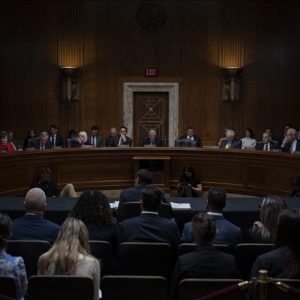EU, US will not accept breakup of Bosnia and Herzegovina: Top EU diplomat
BRUSSELS (AA) – EU foreign policy chief Josep Borrell on Sunday said that the EU and US will not accept the breakup of Bosnia and Herzegovina.
Speaking at a panel discussion at the Munich Security Conference, Borrell asserted that the situation “has never been this worrying” in Bosnia and Herzegovina.
He said that he had been coordinating with US State Secretary Antony Blinken for months, and they have “issued a very serious warning” to the leaders of the country.
“We will not accept the breakup and the disintegration of Bosnia and Herzegovina,” Borrell said.
He also explained that he held talks with Milorad Dodik, the president of the Republika Srpska, and urged him to participate in the work of common federal institutions.
Borrell also stressed that “it’s absolutely essential” for Serbian, Bosniak, and Croat leaders to agree on the constitutional and electoral reform of the country, demanded by the international community.
Sanctions possible
EU foreign ministers will discuss the situation in Bosnia and Herzegovina, as well as possible sanctions against leaders of the Republika Srpska on Monday.
In 1995, the Dayton Peace Agreement ending the war in Bosnia created a new federal government system with two entities: the Republika Srpska and the Croat and Bosniak-populated Federation of Bosnia and Herzegovina.
Last July, the country entered its worst political turmoil since the end of the war, when Serb officials started to boycott federal institutions because of a new law banning the denial of genocide and criminalizing the glorification of war criminals.
The crisis further escalated in October, when Milorad Dodik, the leader of the Serb-run entity Republika Srpska, announced it was quitting the main federal institutions to achieve sovereignty.
On Feb. 10, Bosnian Serb lawmakers voted in favor of a law establishing a separate High Judicial and Prosecutorial Council in the Republika Srpska.
The spokesperson for EU foreign affairs and security policy said the move constitutes an “unacceptable violation of the constitutional and legal order of Bosnia and Herzegovina.”










